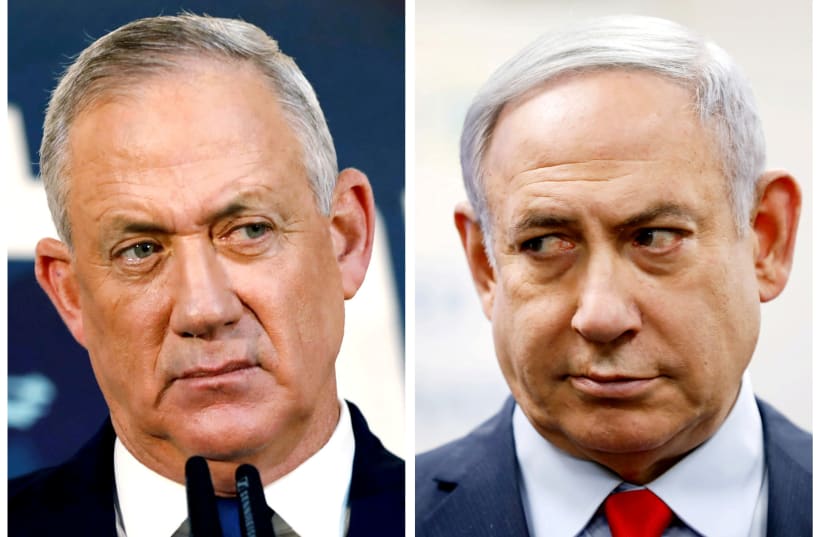In a development that could prevent an early election, Attorney-General Avichai Mandelblit wrote to Prime Minister Benjamin Netanyahu and Defense Minister Benny Gantz late Sunday, warning that they must place a budget on the Knesset agenda in the very near future after failing to meet previous deadlines set by the legislature.
Further, Mandelblit cautioned that he must inform the High Court of Justice on the status of the issue as early as Monday and that an expanded panel of the court is expected to hear arguments in the coming weeks whether the government can legally continue to govern without passing a budget. A smaller, three-justice panel of the High Court has pressed the government on the issue.
Netanyahu and Gantz are expected to meet in the coming days, and they will undoubtedly address the attorney-general’s demand. The Blue and White leader is also set to meet on Tuesday with Finance Minister Israel Katz.
At Sunday’s cabinet meeting, Gantz told Netanyahu he does not believe a solution to their dispute over the 2021 state budget is on the horizon.
“It is too bad that for yet another week we are not voting on the state budget,” Gantz told Netanyahu. “Another week has been lost. I hope the issue will be resolved, but I don’t see it happening.”
Gantz must decide by Wednesday whether to support opposition leader Yair Lapid’s bill to dissolve the Knesset, which will come to a vote that day. Sources in Blue and White said there are contacts between Netanyahu’s and Gantz’s associates to try to resolve the dispute before then.
“Elections are the wrong step to take, but if nothing changes, there is a good chance we will vote for them,” Science and Technology Minister Izhar Shay (Blue and White) told The Jerusalem Post Sunday. “Elections will not help Israel. They will not guarantee an outcome for the Center-Left bloc that I represent, which is better than in the last three elections.”
One possible solution being discussed is to vote on 90% of the budget by Gantz’s deadline of the end of the year and leave part of the budget not passed to satisfy Netanyahu.
The coalition agreement states that if Netanyahu initiates an election, Gantz would become caretaker prime minister, except if the government falls over not passing a budget. If the budget is not fully passed by the end of March, Netanyahu would be caretaker prime minister, and elections would be held in June when he wants them.
Katz will formally present the NIS 426 billion state budget for 2021 to Netanyahu on Monday, and it could be the first step toward a compromise.
Netanyahu was quoted as saying in private conversations that he does not intend to compromise with Blue and White.
“They will vote how they vote,” he reportedly said. “We will vote against dispersing the Knesset.”
In a step toward working together, the Ministerial Committee on Legislation held a rare meeting on Sunday, in which Likud and Blue and White ministers helped advance each other’s bills. But Gantz told Blue and White ministers he was not impressed by the gesture, and what really mattered was passing a budget and enabling appointments to key positions that have long been vacant.
The committee approved Katz’s proposal to reduce salaries for public-sector employees, from the prime minister on down, by 10%. The wage cut is expected to save more than NIS 70 million each year in expenditures, according to Katz.
It also advanced the High-Speed Internet for the Periphery Law, which was put forth by Communications Minister Yoaz Hendel (Blue and White).
The approval will ensure the establishment of high-speed 5G Internet infrastructure in places where laying fiber-optic cables are not economically viable (namely, Judea and Samaria and the rural and Arab sectors), using a government fund that will be set up with money from telecommunications companies.
Idan Zonshine contributed to this report.
